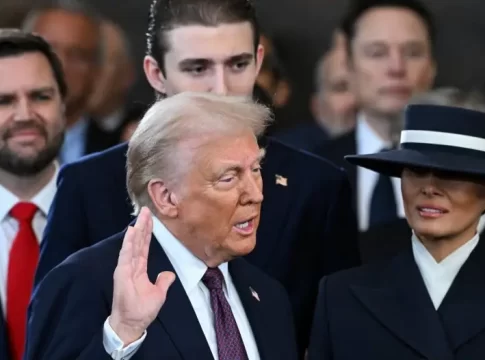As Donald Trump assumes office once again, the atmosphere is charged with both anticipation and trepidation. With a bold agenda poised to transform domestic policies and reshape international relations, the world watches intently. The second Trump administration heralds a period of significant change at home, while its foreign policy strategies promise to ignite both economic booms and diplomatic hurdles.
At the heart of Trump’s economic vision lies a promise of resurgence, driven by tariffs, deregulation, and an aggressive push for fossil fuel expansion. These policies aim to rejuvenate domestic industries like oil and mining, potentially unleashing a wave of new investments. Yet, this might come at the cost of environmental initiatives, drawing concern from climate advocates. Trump’s economic nationalism, epitomized by proposed tariffs on Europe and Canada and a renewed focus on the Panama Canal, risks sparking retaliatory measures and straining ties with key allies.
Domestically, Trump’s immigration stance promises to stir controversy. Plans to deport millions of undocumented immigrants, end birthright citizenship, and tighten border controls are poised to reshape America’s demographic and cultural landscape under the guise of heightened national security. In technology and government efficiency, figures like Elon Musk may play influential roles, potentially driving innovation and cost-cutting within federal institutions, aligning with Trump’s vision of a leaner government.
On the international stage, Trump has boldly claimed he could swiftly resolve the Russia-Ukraine conflict, even suggesting a 24-hour timeline post-inauguration. However, without a concrete plan, these assertions are met with skepticism. Retired Lt. Gen. Keith Kellogg, appointed as envoy to Ukraine, aims for a peace deal within 100 days, though he acknowledges the complexity of the task. Trump’s strategy seems to leverage personal relationships with leaders Putin and Zelenskyy, while hinting at reduced U.S. military aid to Ukraine, pushing European nations for greater involvement. Concerns linger that Trump could pressure Ukraine into concessions, although his team asserts a commitment to a fair resolution.
In the Middle East, Trump’s “America First” policies could significantly impact Egypt, particularly in energy and automotive sectors, as Europe seeks alternatives amidst US-China tensions. Egypt’s strategic location and manufacturing prowess offer advantages as global supply chains shift. However, challenges loom with potential competition from increased U.S. LNG exports. Trump’s administration is expected to prioritize geopolitical alliances over human rights issues, strengthening Egypt’s political influence in the Horn of Africa.
Trump’s plans for a “maximum pressure” campaign against Iran aim to isolate Tehran from Russian and Chinese allies, possibly through a settlement in Ukraine. However, this strategy could provoke Iran to bolster its nuclear capabilities. While diplomatic negotiations may be pursued, opposition from China and Russia complicates this path.
While a robust internal economy under Trump’s leadership seems conceivable, the path towards stable international relations appears fraught with complexity. As America navigates these uncharted waters, the ripple effects of Trump’s policies will likely redefine both national prosperity and global alliances. Balancing economic growth with diplomatic finesse will be the crux of this administration’s challenge.
|
|


